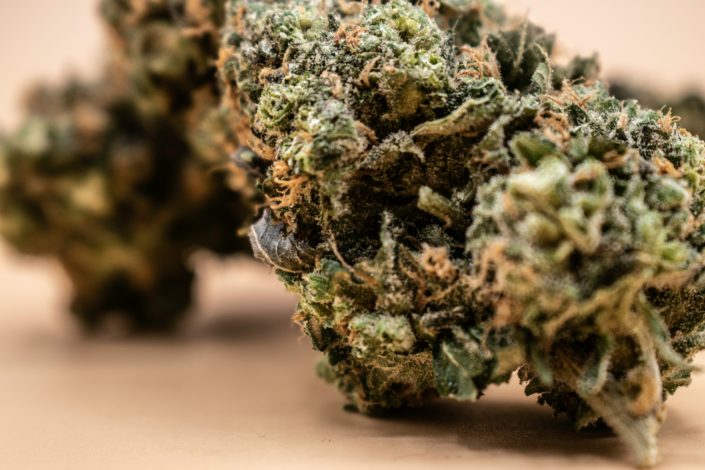THCA Flowers: Uniting Tradition with Innovation

Recognizing THCA Flowers
THCA is a non-intoxicating cannabinoid uncovered in raw marijuana plants. Unlike its much-preferred equivalent, THC (tetrahydrocannabinol), THCA does not produce psychedelic influences when consumed in its raw type. Rather, it provides a series of prospective therapeutic advantages without the “high” normally related to marijuana usage.
THCA flowers describe the unprocessed buds of the marijuana plant, which consist of high degrees of tetrahydrocannabinolic acid. These thca flowers are typically gathered and consumed in their raw state or processed into various items like casts, oils, or edibles.
The Science Behind THCA
Study into THCA is still in its start; however, preliminary studies suggest that it might have numerous restorative household or commercial homes. THCA involves the body’s endocannabinoid system (ECS), which is vital in managing physical features such as state of mind, appetite, pain, and immune reactions.
The Surge of THCA Flowers
The emergence of THCA flowers can be credited to countless facets, including altering perspectives toward marijuana consumption and renovations in farming strategies. As legalization campaigns continue to get energy worldwide, consumers are considerably searching for options for traditional high-THC marijuana items. THCA flowers offer a solution for those aiming to discover the therapeutic potential of marijuana without experiencing the psychoactive results commonly connected with THC.
Furthermore, technologies in breeding and growing technologies have enabled farmers to produce marijuana anxiety with particular cannabinoid accounts, including high levels of THCA. By uniquely replicating plants with raised THCA products and little THC, farmers can suit the increasing demand for non-intoxicating cannabis products.
The Future of THCA Research Study
As the passion for cannabinoids continues to broaden, so does the need for more research into their potential healing benefits. While preliminary studies on THCA are appealing, much more considerable expert tests are needed to understand its systems of action and effectiveness in handling countless health problems.
Furthermore, checking out the synergistic results of THCA with numerous other cannabinoids and terpenes, referred to as the entourage impact, may open new opportunities for personalized medicine and all-natural wellness methods.
Consumer Recognizing and Required
As customers become progressively diligent regarding their buying choices’ eco-friendly and moral ramifications, there’s an expanding need for sustainably created cannabis products like THCA flowers. Ethical consumers seek makers’ openness, containing details regarding farming techniques, eco-friendly qualifications, and practical labor strategies.
Making Use Of THCA Flowers
There are several techniques to include THCA flowers right into one’s health and wellness regimen:
Raw Use: Some individuals select to eat raw marijuana flowers by juicing or blending them right into healthy smoothie mixes. This strategy shields the THCA web content without activating it using cozy, optimizing its possible recovery outcomes.
THCA Tinctures: THCA flowers can be processed into tinctures by saturating them in alcohol or glycerin. Actors provide functional methods for consuming THCA, permitting exact application and simple management.
Topical Applications: THCA-infused creams, balms, and salves can be used directly on the skin to target local discomfort, swelling, or skin disease.
Edibles: THCA flowers can be included in meals to develop instilled edibles like gummies, scrumptious chocolates, or baked goods. When food preparation with THCA, it is necessary to avoid heat that may decarboxylate the substance right into THC, modifying its influence.
Presenting Lasting Practices in THCA Growing
Chemical-free Farming: Many producers of THCA flowers prioritize all-natural farming techniques. Avoiding fabricated chemicals and plant foods lessens dirt and water contamination while maintaining biodiversity. Organic farming techniques promote soil health and wellness and wellness, producing much more durable and resilient plants.
Water Preservation: Water scarcity is a pressing problem in numerous regions, making efficient water use a vital factor to consider for lasting farming. THCA growers apply water-saving techniques such as drip irrigation, rain harvesting, and drought-resistant cultivars to decrease water usage without jeopardizing plant health and wellness.
Power Effectiveness: Indoor growing centers consume substantial energy for lights, home heating, and airflow. To mitigate this ecological impact, THCA cultivators are utilizing energy-efficient modern-day innovations such as LED lights, wise environment control systems, and renewable energies like solar power. These advancements reduce carbon emissions and decrease cultivators’ overhead.
Regenerative Farming: Some forward-thinking THCA cultivators embrace regenerative farming principles, seeing their procedures as part of an extra comprehensive ecological community. They concentrate on dirt health with approaches such as cover cropping, plant rotation, and composting, aiming to boost biodiversity and withdraw carbon in the soil. By replicating natural processes, regenerative agriculture promotes long-lasting sustainability and stamina.
Integrated Insect Management (IPM): THCA farmers perform IPM approaches to care for bloodsuckers and problems instead of relying on chemical pesticides. This alternate technique incorporates safety nets, natural controls, and social practices to minimize pest damage while securing environmental balance. By advertising all-natural predators and boosting plant resilience, IPM decreases the need for synthetic interventions, shielding both the setup and consumer health and wellness.
The Environmental Benefits of THCA Flowers
By welcoming long-lasting growing techniques, THCA manufacturers add various eco-friendly benefits:
Decreased Carbon Impact: Sustainable farming methods minimize carbon exhausts connected with power usage and chemical inputs, aiding battle atmosphere modification.
Conservation of Water Resources: Water-efficient methods conserve invaluable water sources, particularly in areas susceptible to droughts, water stress, and anxiety.
Defense of Biodiversity: Natural farming and regenerative farming help diverse ecological communities, grow pollinator habitats, and preserve aboriginal plant types.
Soil Wellness and Carbon Sequestration: By enhancing dirt fertility and structure, lasting farming methods advertise carbon sequestration and alleviate dirt disintegration, adding to climate sturdiness.
Final thoughts
THCA flowers are an intriguing technique for making use of the healing power of cannabinoids. From their anti-inflammatory and neuroprotective structures to their possible antiemetics and anti-oxidants, THCA offers a series of possible health advantages without the envigorating impacts usually related to cannabis.
As research into THCA continues to progress, so will our understanding of its responsibility in promoting health and wellness. Whether taken raw, refined into casts, or integrated into topical products and edibles, THCA flowers promise a natural service for countless problems, including in the ever-expanding landscape of alternative medicine.